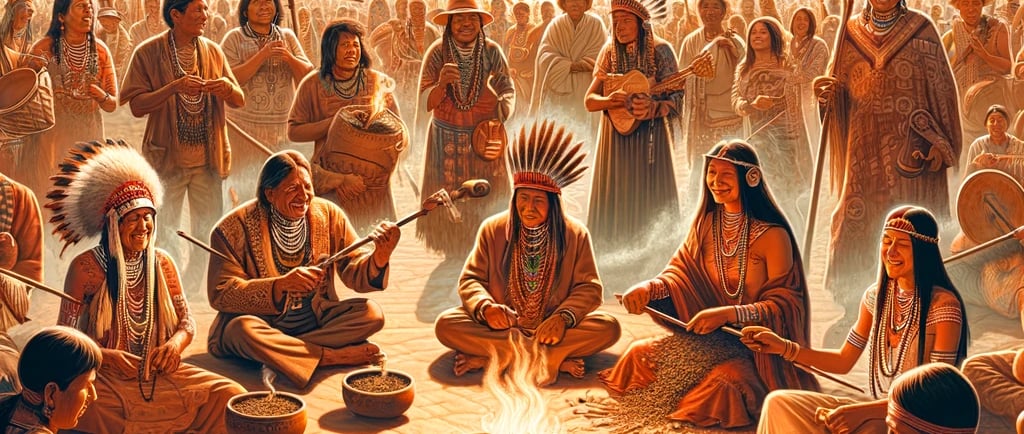Cannabis and Cultural Identity: The Role of Cannabis in Indigenous and Local Traditions
Cannabis has long been intertwined with the cultural fabric of various societies around the world. From sacred rituals to traditional medicines, the use of cannabis by indigenous and local communities is rich with history and significance. This article explores the deep connection between cannabis and cultural identity, highlighting how these traditions have persisted and evolved in the face of modern challenges.
CANNABIS GUIDE
5/6/20241 min read


Historical Significance of Cannabis in Indigenous Cultures
Cannabis has been used for centuries in many cultures for its medicinal, spiritual, and practical applications. For example:
Rastafarianism: In Jamaica and beyond, cannabis is considered a sacred herb that brings one closer to the divine and is an integral part of religious rituals.
Hinduism: Known as "bhang" in India, cannabis has been used in religious festivals like Holi, where it is consumed as a drink to promote spiritual ecstasy.
Indigenous American Tribes: Many Native American tribes have used cannabis in medicinal practices and as a trade good, integrating it into their cultural and social fabrics.
The Impact of Colonization and Legal Restrictions
The colonization periods brought significant repression of indigenous practices, including the use of traditional plants like cannabis. Legal restrictions imposed by colonial and later national governments often criminalized the traditional use of cannabis, leading to a loss of cultural practices and significant legal and social challenges for indigenous peoples.
Revival and Legal Recognition
Recent years have seen a revival of interest in traditional practices, with some communities pushing for the legal recognition of their rights to use cannabis as part of their cultural heritage. Efforts to decolonize cannabis laws are underway in several regions, aiming to restore these traditional practices and recognize their cultural significance.
Case Study: Some countries have begun to acknowledge the cultural rights of indigenous groups to cultivate and use cannabis, incorporating these rights into their legal frameworks.
Contemporary Uses and Cultural Renaissance
In contemporary settings, indigenous and local communities are increasingly using cannabis not only as a medicinal and spiritual resource but also as a means of economic development. Cannabis cultivation is being viewed as a way to empower communities, preserve cultural heritage, and promote sustainable practices.
Cultural Festivals: Many communities host festivals that celebrate their traditional uses of cannabis, attracting tourists and promoting cultural exchange.
Challenges and Future Directions
While there is a growing recognition of the cultural significance of cannabis, communities face ongoing challenges such as integration into national legal systems, combating stigma, and ensuring that commercialization does not erode traditional values. The future of cannabis in cultural traditions depends on a balanced approach that respects cultural heritage while adapting to contemporary legal and economic contexts.
Conclusion
Cannabis holds a special place in the cultural identity of many indigenous and local communities around the world. As global perspectives on cannabis shift, there is a significant opportunity to honor and incorporate these traditional uses into modern practices. Recognizing and protecting the cultural rights of these communities is essential for preserving their heritage and ensuring that cannabis continues to serve as a bridge between the past and the future.
